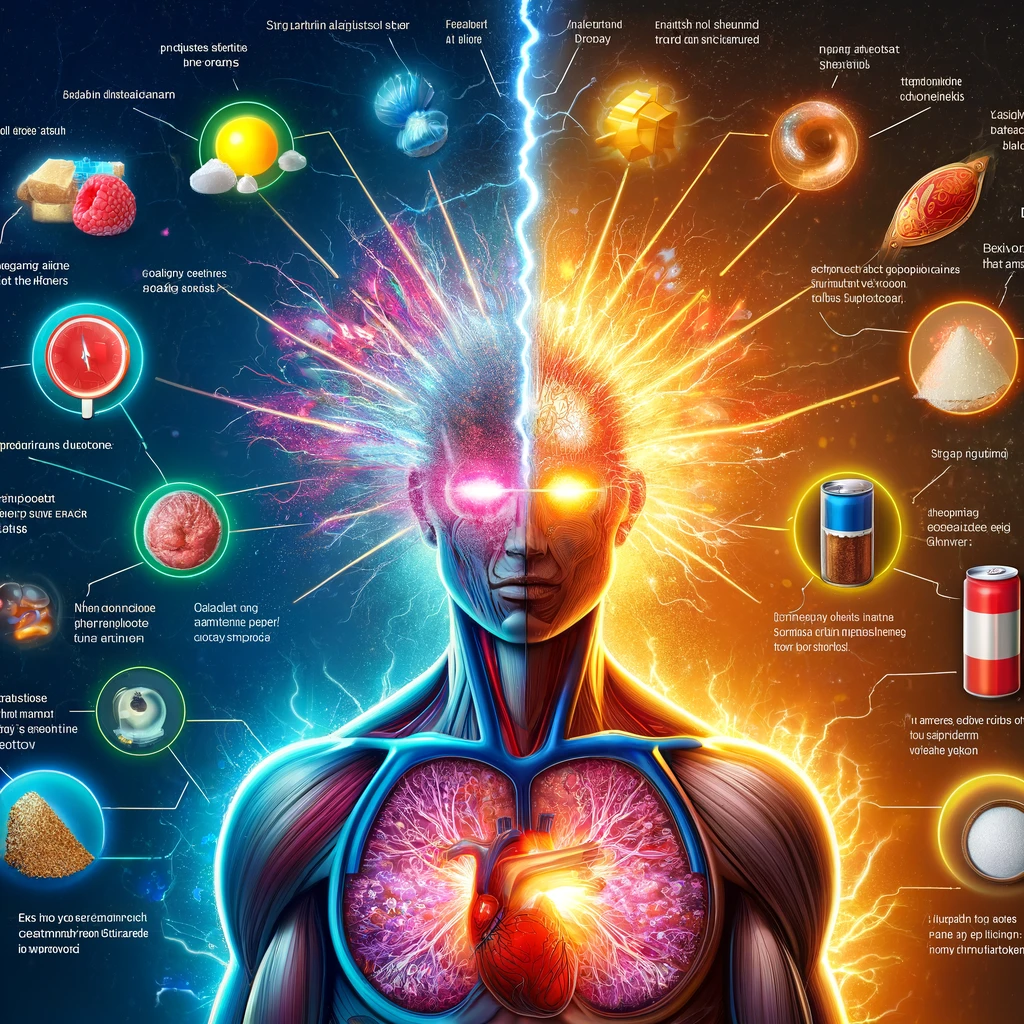The Impact of Energy Drinks on the Body: What You Need to Know

Energy drinks have become a staple for many people seeking a quick boost in alertness, stamina, and focus. From students burning the midnight oil to athletes aiming for peak performance, energy drinks promise a convenient solution. But what exactly happens when you consume these beverages, and how do they affect your body?
What’s Inside an Energy Drink?
Most energy drinks contain a combination of the following ingredients:
- Caffeine: A primary stimulant that improves alertness and reduces fatigue.
- Sugar: Provides a rapid energy source, often in high amounts.
- B Vitamins: These are included to support energy metabolism.
- Taurine: An amino acid that may support neurological development and regulate hydration.
- Herbal extracts: Ingredients like ginseng and guarana are often added for perceived energy-boosting properties.

The Immediate Effects on Your Body
- Increased Alertness:
- The caffeine in energy drinks blocks adenosine receptors in your brain, reducing the sensation of fatigue and promoting wakefulness.
- This effect usually kicks in within 10-15 minutes of consumption.
- Blood Sugar Spike:
- High sugar content causes a rapid rise in blood glucose levels, providing a quick energy boost.
- However, this is often followed by a “sugar crash,” leaving you feeling tired and sluggish.
- Elevated Heart Rate and Blood Pressure:
- Caffeine stimulates the central nervous system, which can temporarily increase your heart rate and blood pressure.
- Improved Physical Performance:
- Some studies suggest that moderate caffeine intake can enhance endurance and reduce perceived exertion during physical activity.
The Longer-Term Effects
- Potential Dependency:
- Regular consumption of caffeine can lead to tolerance, meaning you may need larger doses to achieve the same effect.
- Dependence on caffeine can result in withdrawal symptoms such as headaches, fatigue, and irritability when intake is reduced.
- Impact on Sleep:
- The stimulating effects of energy drinks can interfere with sleep patterns, especially if consumed in the evening.
- Poor sleep can lead to a cycle of increased reliance on stimulants.
- Metabolic Concerns:
- Excessive sugar intake from energy drinks contributes to weight gain and increases the risk of developing type 2 diabetes.
- Sugar-free versions avoid these risks but may include artificial sweeteners, which have their own health debates.
- Cardiovascular Risks:
- Consuming multiple energy drinks or combining them with alcohol can strain the heart, increasing the risk of palpitations, arrhythmias, or even heart attacks in susceptible individuals.
Who Should Be Cautious?
- Teens and Young Adults: Adolescents are more vulnerable to the adverse effects of caffeine, and excessive consumption may impact brain development.
- Pregnant Women: High caffeine intake is linked to increased risks during pregnancy.
- Individuals with Health Conditions: People with heart conditions, diabetes, or anxiety disorders should consult a healthcare provider before consuming energy drinks.
Tips for Responsible Consumption
- Moderate Intake: Stick to one energy drink per day and avoid combining it with other caffeine sources like coffee.
- Hydration: Balance your caffeine intake with plenty of water to stay hydrated.
- Read Labels: Pay attention to the caffeine and sugar content of your chosen drink.
- Opt for Natural Energy: Prioritize healthy energy sources like balanced meals, regular exercise, and adequate sleep.
Conclusion
Energy drinks can provide a temporary boost in energy and focus, but they are not without risks. By understanding their effects and consuming them responsibly, you can minimize potential harm while still benefiting from their intended purpose. For long-term health and sustainable energy, focus on natural lifestyle choices rather than relying heavily on these quick fixes.



